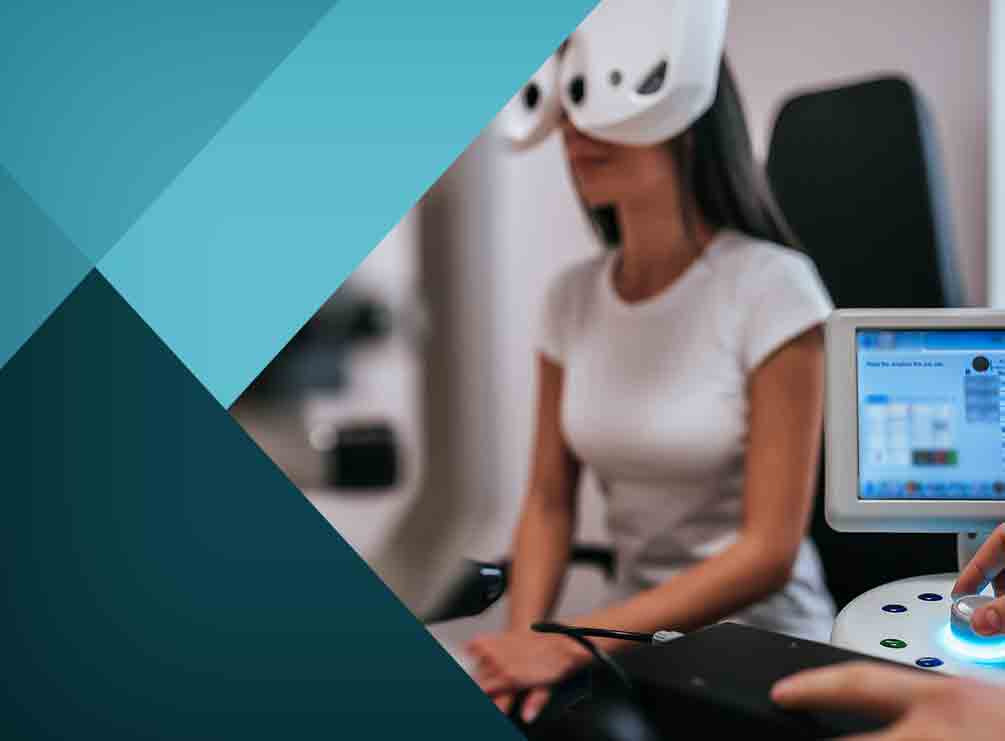Traditional eye tests catch many problems, but they also miss some. If you have persistent symptoms of eye problems with no resolution, you should look for other answers. Don’t accept that there is no treatment for your eye issues.
Vertical heterophoria is a type of binocular vision dysfunction that causes problems in your day-to-day functioning. Because the symptoms caused by this subtle eye misalignment are pretty common, it can be easily missed by standard eye exams. If you have been searching for answers to the root cause, we are here to help.
What is Vertical Heterophoria?
If you have vertical heterophoria, your two eyes send conflicting images to the brain. One eye is out of line with the other. Because of this, your brain sends signals back to your eyes to compensate for the misalignment, forcing your eye muscles to work overtime to correct the problem.
When this persists, you have a condition called vertical heterophoria. Your brain can’t deal with getting different images that don’t properly align.
Due to the vague symptoms of vertical heterophoria, you might have received an unwarranted diagnosis or treatment from another medical professional. That can be problematic when the core problem is not being treated. You should see a specialist who can help. These symptoms are common to other conditions, so it wouldn’t be unusual for you to get another opinion.
It can help to see a specialist who understands binocular vision dysfunction. Since this is a problem with your eyes where there are very subtle misalignments, they are often missed on standard eye tests. But these very slight misalignments can wreak havoc on your life. Keep an eye out for symptoms of this little-known problem. Talking to a neurovisual specialist can be the difference between proper treatment and wasting time treating the symptoms alone.
Vertical Heterophoria Symptoms
Your eyes and your brain talk to each other in milliseconds. When they don’t work together, you will notice significant side effects. Some symptoms of vertical heterophoria include:
- Dizziness
- Headaches
- Motion sickness
- Unsteady balance
- Dizziness while driving
- Difficulty reading (losing place, skipping lines, double vision)
As mentioned above, these symptoms aren’t unique to this condition. A neurovisual specialist can confirm if the symptoms you’re experiencing originate from your eyes.
Causes of Vertical Heterophoria
A traumatic brain injury can cause vertical heterophoria, or you can be born with it. It is sometimes genetic, so it can be inherited from a relative. Since vertical heterophoria is a type of binocular vision disorder (BVD), experts in this field are the best specialists to consult.
When there are significant differences in eye alignment, standard tests might catch them. But those tests are not meant to detect tiny differences. These subtle differences are often missed, and patients can spend years living with the symptoms.
Vertical Heterophoria Treatments
Vertical heterophoria can be managed or corrected through specialized prism eyeglasses that reduce the severity of the symptoms. These glasses bend light, so your eyes don’t have to struggle to send the same picture to the brain. When the brain receives aligned images as expected, it stops demanding that the eye muscles work so hard.
These prism glasses can account for your current prescription. If you have nearsightedness or farsightedness, it can still be built into your new glasses.
Instead of multiple images, when you wear prism lenses, your brain gets a clearer picture, and can stop fighting your eyes to correct themselves. This is when you can finally get some relief.
Learn More About Vertical Heterophoria and Binocular Vision Dysfunction
Because it’s hard to catch, you may be on a seemingly never ending journey to find a specialist to treat your symptoms. Dr. Erin Sonneberg understands your frustration and wants to help. Don’t stop looking for answers until you talk to someone who understands. If you are experiencing the symptoms of vertical heterophoria, take our questionnaire or contact us today.


